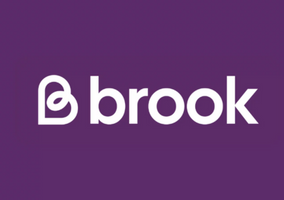All eight charities and other not-for-profit organisations that took part in a recent four-day working week national pilot have opted to continue offering reduced hours to their employees.
Today, the 4 Day Week Foundation and Boston College published the findings of the six-month national pilot of the four-day working week, which began in November last year.
Of the 17 organisations that took part, with over 950 employees between them, eight operate within the charity, not-for-profit, NGO or voluntary sectors, including Bioregional, Bron Afon, the British Society for Immunology, ADD International, CARAS and Global Witness.
Most of the participating organisations (12) trialled a four-day week, while the remainder opted for a nine-day fortnight, with no loss of pay for workers.
All 17 organisations confirmed that they would continue with a four-day week or nine-day fortnight after the trial, with three already making this change permanent.
The previous major four-day week UK pilot took place in 2022 and involved 61 companies and nearly 3,000 workers.
Bron Afon: ‘We’ve maintained our performance levels’
Several participating organisations reported that they were able to maintain service levels and key performance indicators during the trial.
Bron Afon Community Housing, a not-for-profit social enterprise and registered social landlord that took part in the latest trial, decided to extend the four-day week trial period.
The organisation, which has 420 employees, opted to reduce full-time employees’ weekly hours from 37.5 to 30, with no loss of pay.
During the trial, it reported a 28% decrease in the number of working days lost to sickness absence, compared with before the start of the trial.
Chief executive Alan Brunt said: “We consistently score above our target in our real-time customer surveys, and this continued during the pilot, apart from a slight dip in December, due to technical issues which were resolved.
“We’ve maintained our performance levels and see a slight improvement in a few of our strategic KPIs.”
The organisation also experienced a 35% decrease in voluntary employee turnover during the trial and an increase in the number of job applicants.
Bioregional: ‘It’s the future’
Environmental entrepreneurship charity Bioregional’s 29 staff all took part in a trial of a nine-day fortnight as part of the pilot.
Chief executive and co-founder Sue Riddlestone told Civil Society that her organisation was so “delighted and pleasantly surprised” with how its trial went that it decided to extend it for another six months.
“During the initial trial, our revenue broadly stayed the same and there were statistically significant improvements in staff wellbeing and job satisfaction,” she said.
“As a consultancy that bills by the hour, we initially had reservations, but we got great staff buy-in and it’s worked for our clients too, who are really curious to find out more.
“The results don’t lie – it can be done, and it’s the future.”
Benefits of a shorter working week
Overall, a third of participants in the trial registered a decrease in work-related stress, while three-fifths registered a reduction in how often they experienced burnout and two-fifths registered a decrease in how often they experienced fatigue.
Two in five registered an improvement in their mental health and a third reported improvements in their physical health.
There was a drop in participants’ perceptions that staff at their place of work had to choose between “progressing in their career or focusing on their personal lives”, with nearly one in four registering a decrease.
Participants also registered increases in their work-family and work-life balance. Two in five registered an increase in their ability to combine paid work with a social life and almost three in five said their work-family balance had improved at the end of the trial.
The 4 Day Week Foundation is looking for organisations to take part in its next national four-day week trial, which is set to take place in November.
Related articles











